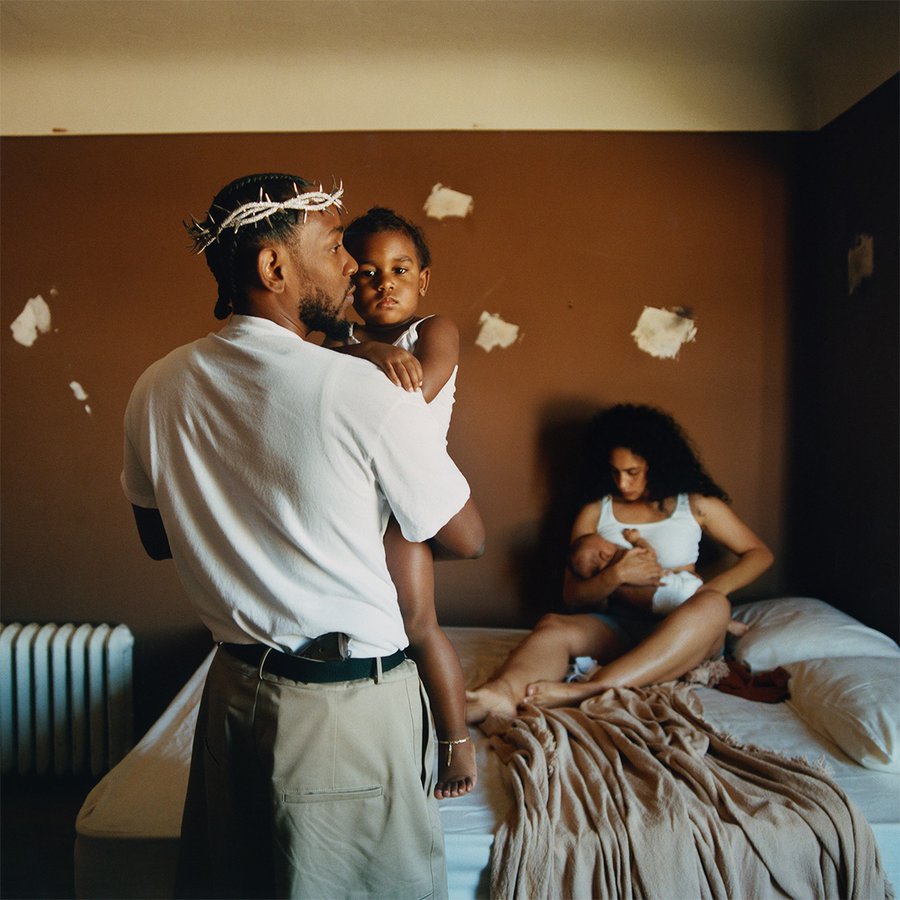Album Review: Kendrick Lamar’s, “Mr. Morale and the Big Steppers”
Pulitzer prize winner Kendrick Lamar Duckworth released his 5th main studio album titled “Mr. Morale and the Big Steppers” on May 13th, 2022. This is his final album released under the TDE label. Writer Issac Coltman shares his thoughts on the album.
May 23, 2022
One word to describe Kendrick Lamar’s new project “Mr. Morale and the Big Steppers” is dense. Another word is disappointing.
Disappointment: the project doesn’t match its expectations.
It’s been five long years for Kendrick fans. With a press release simply saying “I’m back,” the album announcement was a reference to Michael Jordan’s return to basketball– and that comparison is not unearned.
Through a stretch of just four albums, a plethora of awards and a Pulitzer prize, Kendrick has proven himself to be one of the –if not the– biggest voices in the rap industry. So with this, disappointment was a surprise.
In the 1855 days between albums, Kendrick, as evidenced by the explosion in social media hype prior to the release, was facing larger than life stakes and unmatchable expectations, so he relented.
“They idolize and praise your name across the nation / Tap the feet and nod the head for confirmation […] No, I can’t please everybody,” Kendrick writes in the album’s 11th track “Crown.”
Here’s what I think. This album is designed to disappoint you, your expectations are not going to be met. The Kendrick you expected doesn’t exist, and Kendrick wants you to know that.
Through the heavy organ progressions of “Father Issues,” the pulsating bass of “Worldwide Steppers,” the simple piano of “Crown,” the slow build of strings in “Auntie Diaries,” the vulnerable vocal delivery of “Mother I Sober” and the visceral, quantized display of verbal abuse that is “We Cry Together,” Kendrick paints a picture of his flaws in graphic detail.
Through a constant inundation of heavy emotions delivered through fast flows, metaphors and double entendres, the word that describes this album best is “dense.” Topics of abuse, trauma, “generational curses,” Kendrick’s relationship to his fans, addictions, gender and family are all addressed in the album, yet these topics could fill books.
Sonically, this album is similarly polarizing. It seems that the teaser track for this album, the fifth installment in “The Heart” series, was a misnomer. Featuring beautiful string instrumentation, a tasteful Marvin Gaye sample and a clean instrumental texture, it is nothing like the album released afterwards.
The album resembles the production featured on Kendrick’s “Black Panther” project, which was a collaborative project of many rappers and singers with Kendrick as the lead producer.
So on first listen, I was disappointed. That was the first listen. Every subsequent listen after is an opportunity to find another idea, line or instrument under the many layers on this album. “Dense” rings true once again. While the sound isn’t what I expected, it has complexity in its own right.
And I would be remiss not to mention the piano, featured many times on the album. As a big fan of the piano myself (a piano guy, even) it was a welcome addition. This album is a proving piece outside of the 90’s hit “Still Dre” on how acoustic piano has a place in rap instrumentals.
This album is bound to have a life into the future. I think like Kanye West’s project “Life of Pablo,” an originally disappointing release will be remembered as a stunning, decisive and clairvoyant piece of art. One who’s reception will only improve over time.
But when it comes to returning to the instrumental textures of “Heart Pt. 5” or “To Pimp a Butterfly,” I am still searching for a full fulfillment of that vision.




